Protesters under the banner of July Martyrs` Families and Injured July Warriors staged a blockade at Shahbagh in Dhaka on Thursday, demanding immediate implementation of the “July Charter” and its inclusion as a permanent constitutional mandate.
The sit-in began around 10:30 AM and soon brought traffic to a standstill in and around the Shahbagh intersection, causing severe congestion.
Speaking to media, protesters said that their movement would continue until the July Charter is officially announced. Demonstrators chanted slogans such as “No more delays on July demands” and “We must get the July Charter.”
Their demands include formal recognition of July martyrs and injured protestors, lifelong state-sponsored healthcare, education, and welfare for their families, state responsibility for all medical, rehabilitative, and employment-related expenses for the injured, and permanent honorable allowances for affected families.
They are also calling for the establishment of legal aid and protection centers specifically for them, justice for state-perpetrated violence against protesters in line with international standards, and the formation of an independent Truth and Justice Commission.
Shahbagh Police Station Officer-in-Charge (OC) Khalid Mansur confirmed that traffic movement in the area had come to a complete halt due to the ongoing blockade, resulting in significant congestion on surrounding roads.
Meanwhile, the National Consensus Commission is aiming to finalize the second round of dialogue and adopt the final version of the July Charter by the end of today. However, consensus-building talks with political parties are still ongoing.
Some parties—including Jamaat-e-Islami, the National Citizens` Party (NCP), and Islami Andolon Bangladesh—have raised objections to the draft charter, particularly to a clause stating that the proposed reforms must be implemented within two years of forming a government through elections.
These parties argue that the July Charter must be enshrined within a legal framework to ensure enforceability, warning that without this guarantee, the entire reform process risks collapse. The BNP, however, has expressed general agreement with the draft.


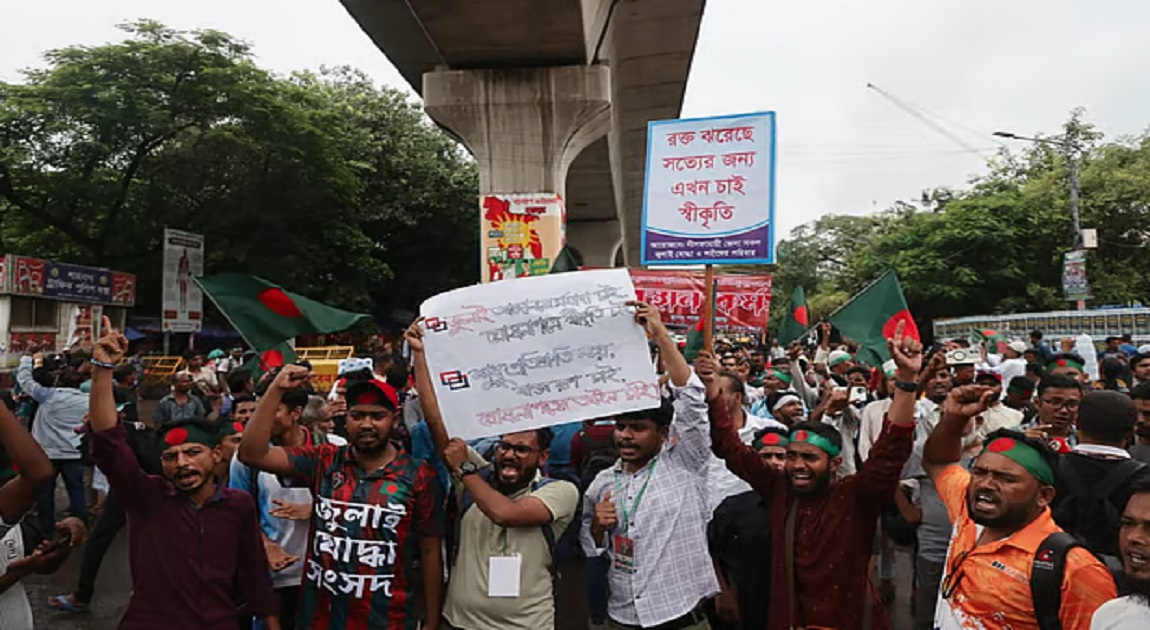



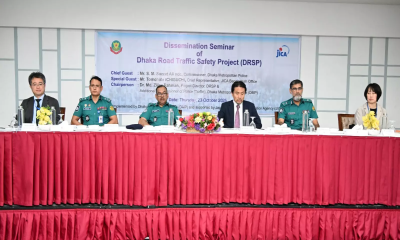
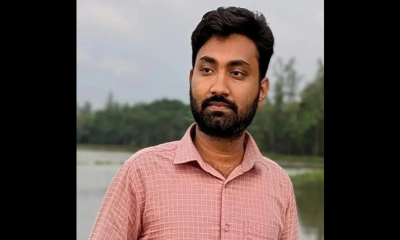
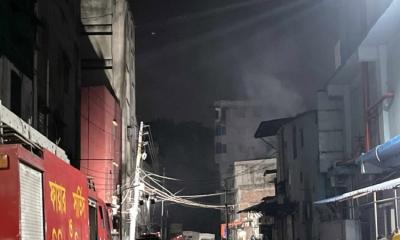
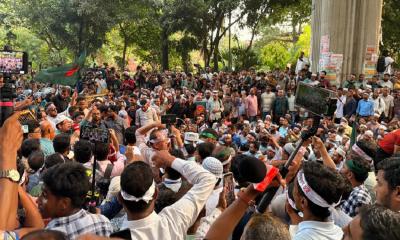








-20260221022942.jpg)
-20260221022827.webp)



















